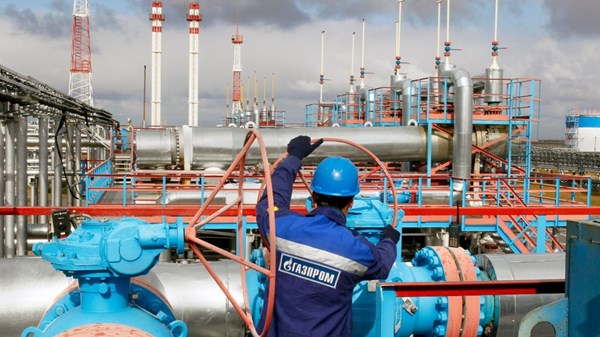Russia puts forth conditions for increasing gas supplies to EU
Russian authorities are pushing for new long-term contracts with Gazprom to boost gas supplies and cool the European market, where prices have soared above $1900 per thousand cubic meters and storage reserves are at historic lows.
Russia already supplies the maximum possible volumes as part of the existing contracts, said Russian presidential spokesman Dmitry Peskov.
Contractual obligations are fulfilled "impeccably" and "at the top level", he stressed, adding that the supply of additional volumes for the spot market is dependent on the capabilities of the infrastructure and should be addressed to Gazprom, not the Kremlin.
The same position was voiced by the Russian Energy Minister, Nikolai Shulginov. Increasing supplies to the EU is possible "only through establishing new contract terms," he said in an interview with the TV channel "Russia 24".
"We can talk, of course, about the increased demand for our gas. And, given that Russia has always been, despite the high domestic consumption of gas, a reliable supplier, I think it will remain so," the minister added.
The European Union, however, seems to be planning to reject the Russian demands, despite the threat of an energy crisis.
At the EU summit on October 21-22, the European Commission will not recommend EU countries to return to the system of long-term contracts for gas supplies from Russia at fixed prices, a diplomatic source in Brussels told TASS.
To reduce the electricity bills, which in some European countries have increased by 400-500 euros per year, the EU offers budget-funded consumer subsidies. Support measures are also being developed for small and medium-sized businesses.
According to the Russian Federal Customs Service, in 2021, for the period from January to August, Russian gas exports increased by 11.7%, to 140.6 billion cubic meters.
The reduction in gas supplies began in the fall, when Gazprom shut down the Yamal-Europe pipeline and refused to book additional transit capacity through Ukraine.
In October, the supply of Russian gas to the European Union fell by 30% compared to September and 15%, analysts at Bank of America estimate. Gazprom booked only a third of the volume available through Yamal-Europe pipeline, and reduced transit through Ukraine by 20%.
At a meeting on energy on October 6, Russian President Vladimir Putin instructed the Russian government "to think" over a possible increase in gas supplies to the European Union.
"We do not need such a speculative hype, because, as you know, behind this hype there are other unpleasant events," he said.
According to Russian Deputy Prime Minister Alexander Novak, a quick permission to begin operation of Nord stream-2 would give a "positive signal". It could "calm down the current situation" with record gas prices, which are "not very good."
